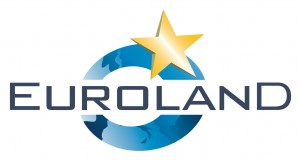Two years ago, at the first [Miami Transatlantic Week->http://www.tiesweb.org/transatlantic_week/index.htm], participants and speakers from two sides of the Atlantic declared that it was time for both European and American civil societies to help Arabs and Israelis to build up a peaceful and democratic Middle East. In following months, almost every Transatlantic “expert” found totally absurd the whole idea of any long term Transatlantic effort in this region. In coming 3 months, this very question “{how to democratise Middle East?}” will be topping the agendas of all major Transatlantic leaders meetings (from Nato to EU/US summits).
Another example of the use of experts when dealing with new situations. But let’s concentrate on the core question;why do Transatlantic leaders get so focused now on Middle East long term future:
– Why Middle East? Because following September 11th, the war in Iraq, the neverending war between Israel and Palestine, and our oil obsession, it is obvious that this region of the world has to be transformed in one way or the other if we want to avoid that it sets other regions in fire.
– Why 2020? Because you cannot root democracy in less than a generation.
– Why democracy? Because till now (but of course the war in Iraq is questioning a bit this conviction) democracies do not wage wars and are able to bring prosperity to a whole region as we have seen in past decades from Europe to Asia.
– Why a Transatlantic effort? Because both the European Union and the USA are agreeing on the previous answers; because they are the two main powers who have an influence on the region in terms of economy, politics and trade; and because they both are eager for oil which give them a strong motivation to be an important player in this part of the world.
So good for the common reasons. Because many elements are also splitting the two players.
On the one hand Washington is willing to implement a very pro-active policy using classical instruments (sticks and carrots) to push Arab regime towards American-style democratic systems, using the shockwawes of Iraq invasion to oblige Arab regimes to change. Meanwhile it looks at a region which goes far beyond the Arab world as it has a clear priority which is to enhance Israel protection; while it is integrating in its plans countries like Iran, Afghanistan or Pakistan (which are belonging to totally different cultural areas).
On the other hand the European Union is willing to use its existing ties with the region especially the ‘EuroMed’ policy which developed in the 90s a specific set of agreements between the EU and 12 countries from Southern and Eastern Mediterranean area and is based upon cooperation with local governments; while it does not consider at all to include Central Asia or Iran inside such a Middle East policy because they share very different issues; and on the contrary the EU wants to include Israel as part of the Middle East problem.
Obviously diplomats from both sides of the Atlantic have a long way to go before they may agree on any concrete action. But those important differences are nevertheless nothing compare to the major flaw of both strategies: they do not have any credible levy to reach out Arabic population.
To shape up a different future for any human community, you need a strong and attractive “dream” which will allow this community and the individuals it gathers to push for changes, accept short term negative consequences and stay deaf to all those voices which are going to call for refusing the change. You need this “dream” to motivate the youth, and in particular, the “young elites” which are going to provide the local or sectorial leadership you need to implement the changes.
Without such a “dream” the “sticks and carrots” will be as effective as it has been with nation building or regime change in past decades: that is to say totally ineffective. Without such a “dream”, cooperation with local governments will just lead nowhere as there will be no internal pressure.
And in this region, not only do we need a “dream” to implement democratic changes, but we need two “dreams”: a dream for the Arabs as such (see report of Europe 2020 seminar of future relations between EU and Arab world) and a “joint dream” for Arabs and Israelis together (see [Middle East 2020 project->http://www.tiesweb.org/transatlantic_week/conference_b/index.htm]). At least in Europe after WWII, we only needed one: European unity. It was simpler.
But let’s face the challenge of Middle East: two “dreams” are needed. If nothing is done with younger generations to shape them up, the Arab unity dream on one side, the Arab-Israeli common dream on the other side, both Europe and the US may keep on discussing: their summits will lead nowhere, but to more conflicts involving more and more directly both the US and the EU.


 LEAP2040 Toutes les informations et archives Europe2040
LEAP2040 Toutes les informations et archives Europe2040


